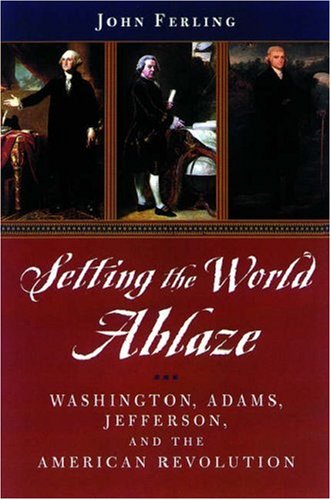What do you think?
Rate this book


428 pages, Paperback
First published July 6, 2000
[Earlier in this paragraph, Ferling wrote about how George’s pursuit of the eventual Martha Washington seemed a bit off by both past and modern-day standards] Portraits suggest [Martha Custis] was short, plump, and plain, although by all accounts she was gracious and kind, as well as intelligent and experienced in managing a planter’s estate. She was also the wealthiest widow in the colony, owning about 100 slaves and 6000 acres, plus additional liquid wealth equivalent to 12,000 pounds [roughly $600,000 today]. (Page 34)
At one point [in his early 20s], Jefferson wrote to [his friend] John Page of his desire to live with him and his wife Frances in the seclusion of the house he one day dreamed of building [what would eventually become Monticello]. Living under the same roof, the three could “pull down the moon” in what was certain to be a “feast of the sensualist”. Page did not respond for a very long time and [when he did, he] never mentioned his friend’s fancy. (Page 38)